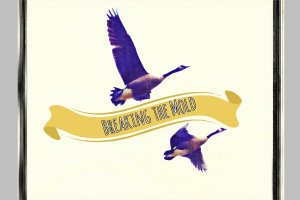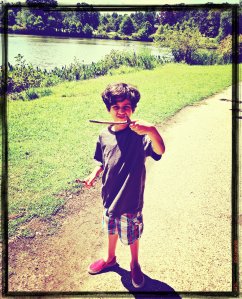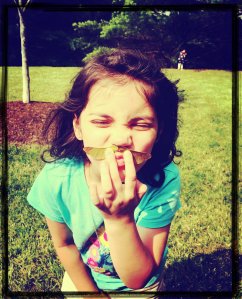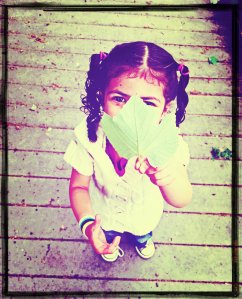Meet Sally and Jane. Sally is an out of the box thinker while Jane is your average stereotypical girl. Sally enjoys STEM activities while Jane prefers to read. Sally prefers comfort and functionality whereas Jane prefers style. Sally is able to fit in as “one of the guys” but Jane does better with female social circles. Sally crashes through glass ceilings however, Jane has to make sure that she doesn’t come across as too bossy.
Sally and Jane are sisters. Their mother was a glass ceiling crasher as well. Sally is conforming to the ideal she was raised to respect. Jane is being true to herself regardless of societal pressures.
That probably not how you imagined that particular scenario flowing, is it?
For decades, Jane represented the perfect woman, at least according to images and characters in the media. However, I would argue, that she is no longer what we teach our daughters to become. Not because one is better than the other. In fact neither truly represent the inherent complexity of a persons identity. I would argue that in our effort to change stereotypes, we have not created a free place for each individual to become their own person, instead we simply created a second mold for girls to force themselves into. We have created a binary language, an if-then universe where a child must choose at an early age to be one or the other with little room for variables.
Do you see how ridiculous this is? What about girls who love fashion and want to build robots? What about a bug lover who reads romance novels? What about an artist who hates fashion? What about all of the what if’s?
What if societies problem is not just limited to girls? What if we’ve allowed our need to compartmentalize data to create an imaginary world? One that exists in our mind but is not accurately programed with the statistical probability of variables? What if every time someone frees themselves from a box they are simply joining a new box? Like a never ending version of those adorable Russian dolls that stack inside of each other.
What if we do this to gifted children? We test them, analyze them, force them to prove their intelligence based on a preconceived notion of intelligence (which itself is based on cultural biases) and then after they have jumped through all of these hoops adequately we assign them a gifted mold to fill.
The truth is every child is different. Gifted or not, Girl or boy. Worse, gifted children grow up to be gifted adults: and we are all different too. Arbitrary measures of success are not adequate markers for a healthy adult. Not every gifted child is going to cure the world of a major disease, invent an alternative fuel source or write the next great American novel…and they won’t be doing it at 20, 30, 40, or even 50. Why? Because everyone is different!
To prove this point I am going to use anecdotal evidence, evidence from my own four children, four siblings who have the same parents yet who present giftedness in varied ways.
 Name: Little Man
Name: Little Man
Age: 8
Learning Style: Visual
Gifted Over Excitability: Psychomotor, Informational, Imaginational, Emotional and Sensory
When Little Man was two days old he held his head up, and turned it as much as a two day old could while following my voice. He walked at 8 months and ran at 10. By 12 months he had figured out how to play Wii baseball. He spoke very little until after 18 months old (when he began speaking in complete sentences) but would listen to me read my grad school books out loud for more than 30 mins at a time. By 2 1/2 he could name every planet in the solar system, tell you if you were going to the wrong way while driving in our neighborhood, point out all of his letters and their sounds and count to 30. He could read fluently by 4 but also could not stop moving. By 5 he was reading at a third grade level- this was when I discovered that he was gifted. By 6 1/2 he had learned all that he could about space from childrens literature (including nonfiction selections up to middle school). While listening to a podcast (a college lecture) he was introduced to the idea of chemical make up within atmospheres and the necessary ingredients for finding life on other planets, this led him to Chemistry. His interests went beyond bases, acids and the reactions so I introduced him to the Periodic Table of Elements. He is still memorizing the bottom third of the elements and has now begun asking questions about Dark Matter, Black holes and the physics behind light speed.
—-It was obvious to me that Little Man was gifted. He had an intense need to constantly learn new information and has always been bombarding me with questions. 
Name: Little Miss
Age: 6
Learning Style: Auditory
Gifted Over Excitability: Emotional, Imaginational
When Little Miss was a baby she hit her milestones at about the same rate as her brother. I thought nothing of this. He was my first and she was my second, so I never questioned the time lines. The only exception to this being her ability to speak. Little Miss began talking at 10 months and was speaking in complete sentences before her 1st birthday. I assumed that it was different because she was a girl and girls talk a lot more. Before her 2nd birthday she could count to 30, but she stopped there and didn’t learn past 30 until after she was 4. She could sing her ABC’s before three and began asking me to teach her how to read at about that time. From three until now we have been working on blending words, she is only now beginning to put them together. By the time she entered kindergarten (@ 5) she could add and subtract numbers with single digits, finish patterns, knew all of her shapes and colors and could tell you which one was bigger or smallest. She could listen to a story once and tell you what a character was feeling based on the flow of words and use of punctuation. She could recall every history fact mentioned and every character’s description read. She is a curious girl who loves to question but is inspired by multiple passions, not one pressing obsession. She is learning both the guitar and piano and has picked up both effortlessly. Her drawings have had arms and legs with five fingers on each appendage and a realistic feel to them since her 4th birthday. Her handwriting is beautiful for a six year old and looks better than some of the boys handwriting I graded while teaching middle school.
—- I never once considered that she might be gifted. It was pointed out to me by a developmental pediatrician. I knew she was smart, funny, and compassionate. I figured that she would be a high achiever once in school, but because she wasn’t reading yet by 5, I assumed she was going to be my normal child.
Name: Curly Que
Age: 5
Learning Style: Kinesthetic
Gifted Over Excitability: Imaginational, Sensory, Psychomotor, Emotional
Curly Que developed in the same way as her older siblings as an infant, I still didn’t know that this was uncommon. She began crawling later than the others and went from crawling to running in three months (7-10). On her first birthday she could say a handful of double syllable words but before she was 14 months old she was speaking in complete sentences. She has almost never outright asked for more information but she has been able to learn a new concept just by being there with her siblings after a handful of repetitions. She is my girl who is sensitive against fabric materials, tags, food texture. She is the one that would push everyone away until she was ready for physical contact and then try to climb inside you, because on top is too far away. She feels great emotions and they completely take over her reasoning abilities but she is also empathetic to the point that she will wait until after her older sister has learned something to show that she too has learned it. Often leaving the middle girls at much of the same level even though there are 19 months separating them. Curly Que is the one child in my house that wants to understand how things work. She is the one that will build with legos for hours or puzzles. She is the one that will spend hours trying to figure out how or why something broke. For her every set back or problem is a puzzle that must be put back together- and she loves putting them back together. Curly Que is a strong willed child who cannot be coaxed into anything not of her choosing. She will look at you while disobeying and pretend like nothing is going on.
—Curly que is my fast learner. She doesn’t always learn things ahead of her peers but when she does learn something new, she learns it quickly. I had suspicions that she might be gifted but I believed that she was too young to know for sure (3 at the appointment), the developmental pediatrician assured me that she was positively gifted.

Name: Itty Bitty
Age: 3
Gifted Over Excitability: Imaginational, Psychomotor, Sensory, Informational, Emotional
Learning Style: Unknown
Itty bitty is by far the smallest yet most opinionated of my children. Her milestones where the same as the others but this time a doctor pointed out that she was ahead. I was confused and asked “are you sure? I thought that was normal.” to which he responded with a list. Apparently they were a few months ahead of their aged peers, I shrugged my shoulders and forgot about that information until much later. At 4 months old she sat through an entire play (in Lancaster PA at the Sight and Sound theater), completely engaged and watching the show (following with her whole head) for a full two hours, not crying once. Itty Bitty did not talk as early as her sisters. She talked even later than her brother. I was beginning to wonder if there was something wrong with her voice when at almost 2 1/2 she still didn’t say more than 20 words but she surprised us when one morning she started speaking and within a few months two word sentences became four word sentences and then complete thoughts. She would pull out my books from my library shelf for her reading time (my favorite time was when she pulled out Hans Morgenthau’s The Restoration of American Politics and then demanded that I start in the beginning with her silent pout). She refused to potty train at two and once she began talking would argue with valid points agains the need to potty train. She chose her own potty training schedule and demanded that we follow it. She is my strong willed child. My defiant one who will tell you “mommy I love you” before disobeying. The one who will look at you while defying orders and smile sweetly. Itty Bitty is also my imaginational mastermind. She has an innate knack for making up stories and already understands that good stories have parts. She creates her characters with details down to the shoes and tries to figure out what is happening next before it does. She analyzes new information quickly and is already answering her siblings school questions. She can count to twenty, name the ABC’s and is always searching for new information.
— This girl is a mixture of her siblings but with very strong leadership qualities. She is head strong and stubborn. She is sassy and inquisitive. She lives in a world comprised of entirely make believe scenarios and people and is a natural story teller.
Four siblings who are all gifted and yet none of them have the same strengths or weaknesses. Only during their infant development did it seem like they developed in the same way. One loves science, one prefers math, one wants to take apart everything she touches and the last has a story for any dull moment. Some learn to read at 4 others are still struggling at 6 1/2. If just my four present themselves in such different lights, imagine the possibilities for every other gifted child. Imagine the possibilities for every other child, period. Why would we want to stifle those possibilities?
If I were going off of checklists or trying to figure things out based on the model of giftedness that is expressed in the media and culturally as a whole, then I would probably would have never toyed with the notion that giftedness could be found within my family. it was only through our interactions with others that we discovered that giftedness was more. It was only after talking about giftedness with others that I discovered that giftedness doesn’t mean reading at 3. It wasn’t until after I was already fully immersed in the gifted community that I found out that a child could be simultaneously speeding forward and stopped. It should not have taken that long for me to find out, I consider it a great sadness.
There is the statistical possibility that hundreds to thousands of gifted children think that their differences make them less than the others because they don’t fit a preconceived mold. In our over simplistic concept of 0’s or 1’s as descriptors of humanity we lose all of the 6’s. We lose the oranges and triangles. We lose the possibilities for diversity that make our world beautiful. In binary you get diversity by lining up 0’s and 1’s in unlimited ways, turning on and off possibilities but why do we have turn people on or off. Why would you want to turn people off? Why would you shut down a child who still has the wonder and amazement of possibility by telling them not to be them? Binary works for computers, it’s an excellent standard for logical computations but its not reality. Reality is messy. Reality is wild. People live in reality, why would we try to change that?
Our world is a giant puzzle, a giant puzzle whose pieces are scattered and some of the pieces are turned upside down. We need dreamers, thinkers, and game changers to find the puzzle pieces, We need scientists, engineers, and artists to pull them in place. We need speakers, writers, and readers to open doorways for the puzzle piece movers and finders. But above all we need to let each actor move in it’s own right. If we tell everyone to be dreamers we miss out on thinkers, but what happens when we get too many dreamers? What happens when the thinker sees the importance of the piece they are working with and become speakers or artists? Are they failures because they changed their minds? Have we limited the parameters of success to only focus on those who completed the job? Are we missing out on gifted individuals because no one recognizes the giftedness in them? Are we telling children they are not gifted simply because they don’t test well, don’t sit quietly in class or are maybe not quite ahead enough? Are we ignoring the autistic child or the latino child or the poor child simply because they don’t quite fit the mold? Why would we do that to ourselves?
Childhood is not a race. There is no finish line. There is no winner. Life is a journey, but none of us make it out of here alive. It is all about how we travel. Are we speeding through on the bullet train? Are we picking flowers along the way and sitting down for naps? What are we expecting from our children? Why are we fitting them into the mold? Are we helping them to find their gifts? Are we teaching them to use them?
Just a little food for thought.
When you look for gifted children, either as a teacher or parent, remember…you are not looking for a mold,
This Blog is just one view of the Depth and Breadth of Giftedness and is a part of the GHF October Blog Hop. Click here to read some more about this topic by other GHF authors.




Yes to this: “The truth is every child is different. Gifted or not, Girl or boy. Worse, gifted children grow up to be gifted adults: and we are all different too. Arbitrary measures of success are not adequate markers for a healthy adult.”
LikeLike
So, so true. There’s such a huge range of giftedness – even within the same family. Learning to celebrate the self is so important to growing up healthy.
LikeLike
Thankyou for talking about your family and their development. It really does help to illustrate just how different each gifted child can be.
LikeLike
I love looking at the differences within a family. What a wonderful picture of the range of giftedness you have captured!
LikeLike
Thanks for your post. It’s generous of you to share sketches of your children and their differences.
LikeLike
Different. I love how you stressed the differences–because we are all different and all gifted children are different. To me, this can’ be stressed enough to help dispel the myths and stereotypes gifted people have to contend with–“breaking the mold.” Gifted = different. And thank you for showing this so well!
LikeLike